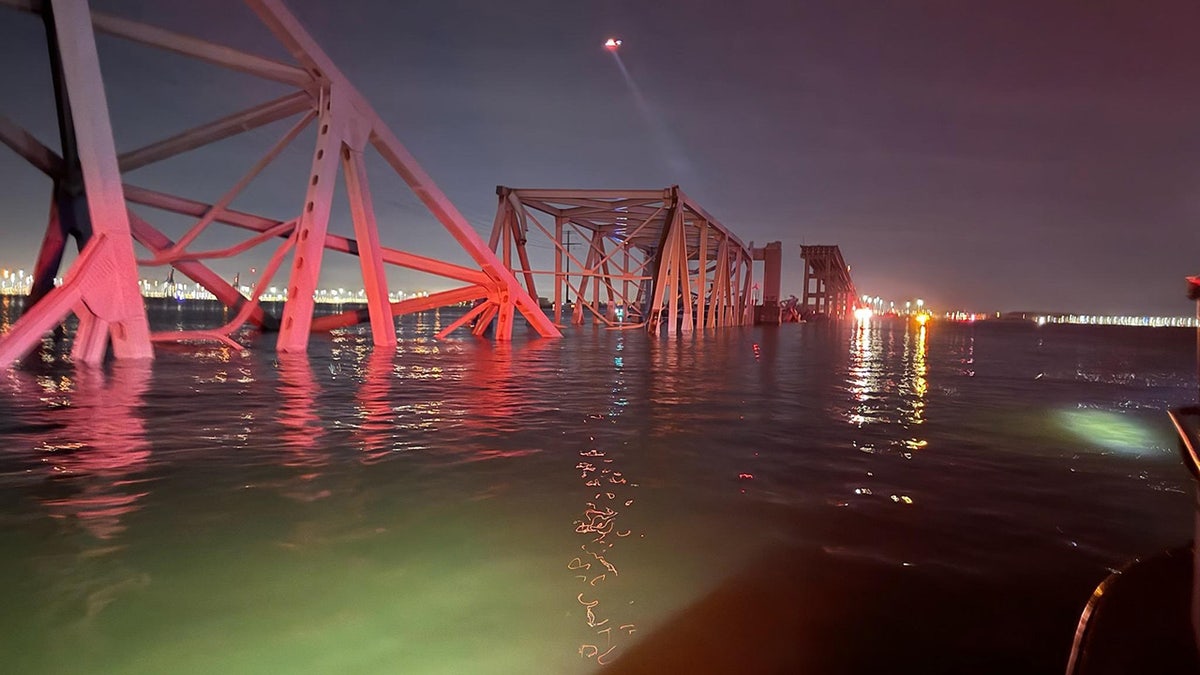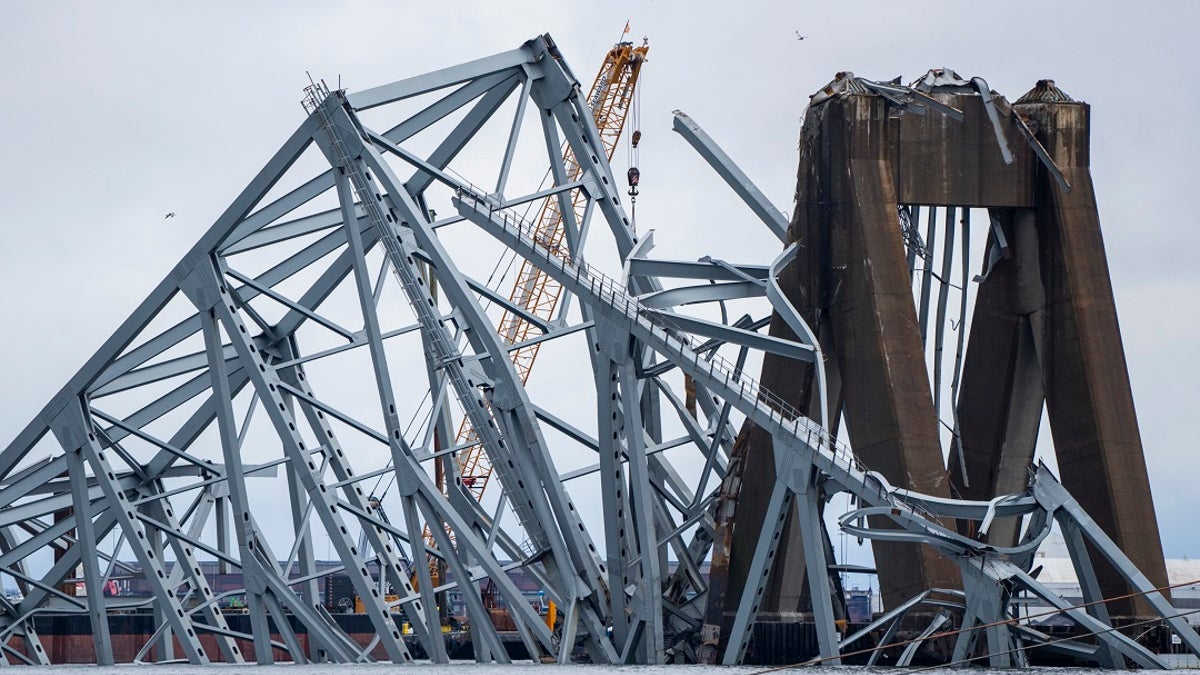US Coast Guard, military working to reopen Port of Baltimore
Fox News chief national security correspondent Jennifer Griffin reports on the opening of a temporary channel in Baltimore after the collapse of the Francis Scott Key Bridge on 'Your World.'
The U.S. Army Corps of Engineers (USACE) announced a tentative timeline to open a limited access channel that would restore safe navigation in and out of the Port of Baltimore after the Francis Scott Key Bridge collapsed, blocking the vital waterway.
The USACE said it plans to open a 280-foot-wide and 35-foot-deep channel by the end of April. The channel would provide one-way traffic in and out of the Port of Baltimore for barge container service and some vessels that move cars and farm equipment.
The USACE also said it is working to reopen the full channel, 700-foot-wide by 50-foot-deep, by the end of May to restore port access to normal capacity.
"Thanks to the exhaustive work of the Unified Command during the last two weeks, including underwater surveys and detailed structural analysis of the wreckage, we’ve developed a better understanding of the immense and complex work that lies ahead," said Lt. Gen. Scott A. Spellmon, USACE commanding general said in a press release. "A fully opened federal channel remains our primary goal, and we will carry out this work with care and precision, with safety as our chief priority."
BALTIMORE BRIDGE COLLAPSE: MAN WHO CROSSED MOMENTS BEFORE DISASTER SAYS ‘I’M REALLY LUCKY'

The Francis Scott Key Bridge is seen after collapsing into the water early Tuesday morning in Baltimore on March 26. A cargo ship struck a support beam on the bridge, causing it to fall into the Patapsco River. (Baltimore Fire Rescue)
Lt. Gen. Spellmon warned the timeline is "ambitious," and things like bad weather or changes in the complexity of the wreckage could prolong the effort.
He said the USACE is also working diligently to locate and recover the two victims still missing in the wreckage.
CARGO SHIP IN BALTIMORE BRIDGE COLLAPSE INVOLVED IN 2016 ACCIDENT
Six members of a construction crew that was filling potholes on the bridge were killed when it collapsed around 1:30 a.m. on March 26. The Dali, a massive cargo ship, slammed into a support column on the Key Bridge, causing it to collapse into the Patapsco River almost instantly.
Police were able to stop traffic from entering the bridge just moments before the disaster.
Prior to the bridge collapse, the Port of Baltimore contributed about $15 million in economic activity every day.

A section of the damaged and collapsed Francis Scott Key Bridge is seen in the Port of Baltimore on Monday. (Kaitlin Newman/The Baltimore Banner via AP)
CLICK HERE TO GET THE FOX NEWS APP
The port is the busiest in the U.S. for car shipments, handling more than 750,000 vehicles in 2023, according to data from the Maryland Port Administration. It is also the largest U.S. port by volume for handling farm and construction machinery, as well as agricultural products.












































